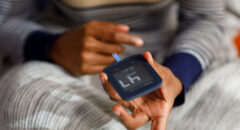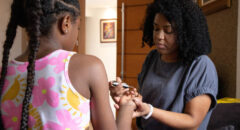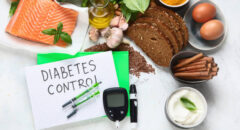
Picture this: It's a hot summer day and you've been in the sun all day. Suddenly your mouth gets dry and you begin to feel fatigued and dizzy. You're dehydrated. About one-half million people are hospitalized in the United States for it yearly, and roughly 10,000 die in the hospital, according to research. While the weather may have contributed to your dehydration, dehydration can occur regardless of the weather or how active you are. If you are experiencing dehydration, there may be something more serious going on with your health.
Signs and Symptoms of Dehydration
Most people who show up in an emergency room due to dehydration are experiencing three telltale symptoms: fatigue, dizziness and headaches. However, there are other symptoms you should pay attention to:
- Feeling thirsty
- Muscle cramps
- Urinating less often than normal
- Dark-colored urine
- Dry skin
- Feeling tired or lethargic
- Fainting
- Confusion
What causes dehydration?
Dehydration happens when your body loses more fluid and electrolytes than it is taking in and you don’t have enough left for your body to function normally, Everyday Health notes.
Dehydration can happen to anyone, however, the following groups are at a higher risk:
- Infants and Children
- Older Adults
- People With Chronic Illnesses
- People With Stomach Viruses or the Flu
- People Who Drink Alcohol
- People on Low-Sodium Diets
- Women Who Are Breastfeeding
RELATED: Bored with Water? Here Are 4 Drinks That are Just as Hydrating
Is diabetes causing your dehydration?
Dehydration is also very common in people with diabetes and can be an early sign that your blood sugar, or glucose may be high.
People with diabetes are more likely to become dehydrated by:
1. Not drinking enough water
If your blood sugar is high, it makes you urinate more. Without water to compensate for the fluids you are losing, you will become dehydrated. This means you may have to drink more water than the average person to replace it.
2. Exercising intensely
Exercise is important if you are living with diabetes, however, you should be mindful. Moderate exercise can lower your blood sugar, when you push yourself hard. As a result, your muscles can't use insulin (the substance that moves glucose from your bloodstream into your cells) as efficiently, research notes.
3. Being out in hot, humid weather
Hot, humid weather poses the threat of dehydration for anyone, including those with diabetes. When the sweat can't evaporate due to high humidity, your body works harder to stay cool causing you to sweat more, your blood circulation to increase, your breathing to get faster, and your body temperature to rise.
4. Drinking alcohol
Alcohol lowers the amount of a hormone called vasopressin, which suppresses urination. The percentage of alcohol in your drink of choice also matters. For example, beer, which contains about five percent of alcohol, is better than spirits, which contains about 50 percent of alcohol.
How much water should you drink with diabetes?
If you’re living with diabetes, you should drink about 1.6 liters (L) or 6.5 cups per day for women; and 2 L or 8.5 glasses per day for men.
Tired of plain water? Try adding a few squeezes of fresh lime or lemon juice. Caffeine-free herbal teas, skim milk, and sugar-free sparkling water and coffee are also options, however, avoid energy drinks, fruit juices, and sodas, which contain high amounts of sugar and can further increase your blood sugar.
RELATED: Take The Gallon Of Water Challenge!
Treating dehydration
If you have diabetes and feel symptoms of dehydration, it is important to drink clear fluids (preferably water) slowly. When your urine becomes lighter, you are becoming less dehydrated.
You should also get into the shade or into an air-conditioned building if you are in the sun. Lastly, if you are exercising intensively, slow down and rest while you rehydrate.
When to see a doctor
If you have signs of mild dehydration, drinking more water and managing your diabetes can help balance your fluid level and improve hydration. However, if medication and lifestyle changes aren't controlling your blood sugar, it may be time to change your diabetes medication.
If you at any point experience trouble breathing, feel confused or faint, or feel like your heart is pounding and you're breathing fast, your symptoms are severe and you should seek immediate medical attention. Severe dehydration can be fatal, Everyday Health notes.
Once you arrive to the emergency room, healthcare providers will take your vital signs and check your electrolyte (mineral) balance and kidney function. This will help them determine if your blood sugar levels are too high or low. They will also give you fluids through an intravenous (IV) line to reduce dehydration.
You should also see a doctor if you have severe symptoms of dehydration such as confusion, low blood pressure, and a weak pulse, or if you have symptoms of diabetic ketoacidosis. These symptoms include:
- nausea or vomiting
- fruity-scented breath
- shortness of breath
- confusion
If you have signs of dehydration, but your blood sugar remains within a normal range, consult with your medical team as well.






